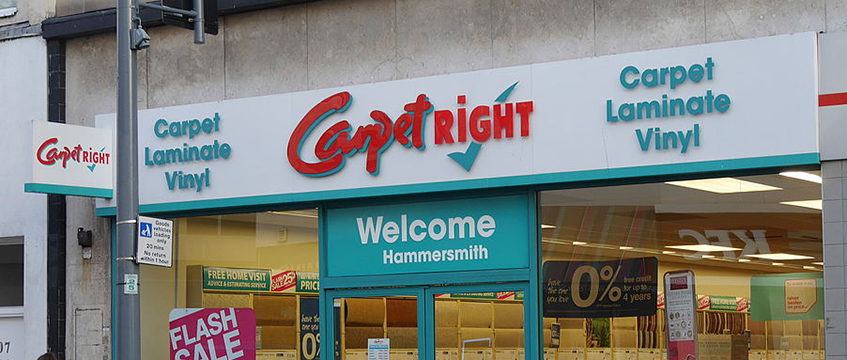Carpetright has reported a loss in the year to 28 April, weeks after it launched a company voluntary arrangement process as part of a rescue plan.
For the year to 28 April, Carpetright posted a statutory loss before tax of £70.5m, including store closure costs and asset write-downs. This compares with profit before tax of £0.9m.
Like-for-like sales dropped by 3.6%, compared with a 0.5% decline in 2017.
The company’s creditors approved a CVA in April, which allowed it to close 81 stores. It also raised an extra £65m in equity financing from shareholders, with the capital going towards refurbishing and modernising its store estate as well as upgrading its digital platform.
Read everything you need to know about the retail crisis here
Wilf Walsh, chief executive of Carpetright, said the CVA and recapitalisation offered the chance to “rebuild” the business.
He said: “This will be a transitional year for the group as we work through our recovery plan.”
Carpetright said its performance reflected weaker trading from stock shortages, after suppliers tightened their credit terms in response to “adverse publicity surrounding the group’s restructuring”.
The company’s underlying loss before tax was £8.7m, falling from a profit of £14.4m in the previous year.
The results noted that while some landlords “have been critical of CVA processes generally”, Carpetright had received approval on its approach from the British Property Federation as well as an endorsement from the Pension Protection Fund.
High street: Armageddon or opportunity?
“Reluctantly, a CVA was genuinely our only viable option and we look forward to building profitable relationships with landlords over the three-year period of the CVA and beyond,” it reads.
Figures from Radius Data Exchange show that the store closures will lead to more than 1m sq ft of retail space flooding the market, equalling around 10% of all space relinquished across the UK in 2018.
James Child, retail analyst at EG, said: “Intent on remaining a market leader in flooring, goodwill for the brand could help it to re-establish itself if the business continues to realign with new shopping trends and consumer demands.
“There is a recognition that the business isn’t ‘Amazon-proof’ and that many consumers still want that purchasing experience by being able to ‘talk to a human being’, so a clear focus on physical trading still runs through the core of the business.
“What remains to be seen is if they can eradicate the issues which led them to through the CVA process and redefine their refurbished portfolio to remain profitable.”
To send feedback, e-mail pui-guan.man@egi.co.uk or tweet @PuiGuanM or @estatesgazette











